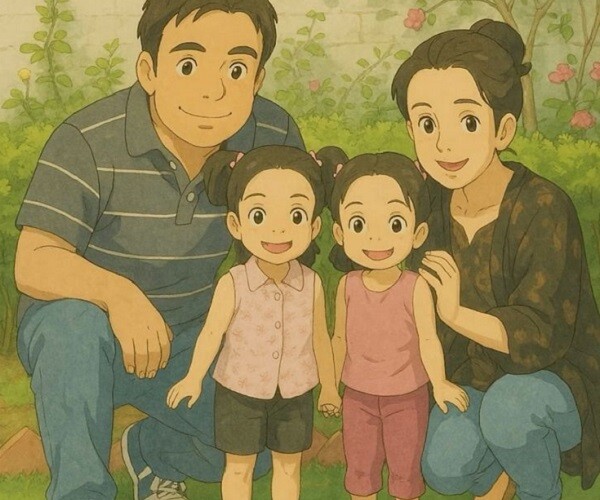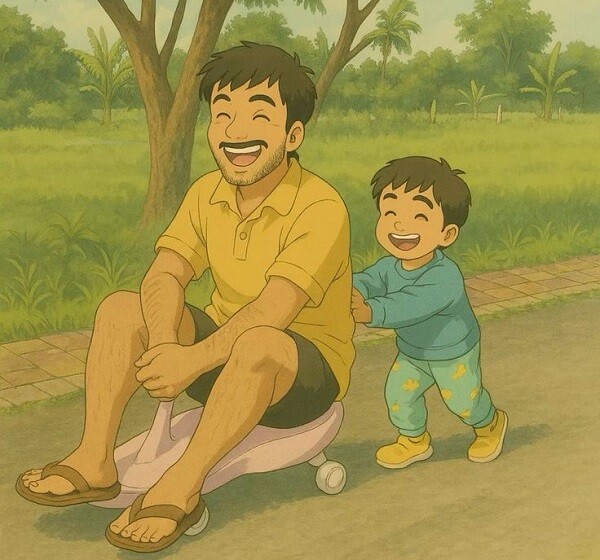Modern society emphasizes the active role of fathers in family life, encouraging their involvement in household chores and providing a stable and reliable foundation for their loved ones. Fathers can infuse energy and become the driving force behind a family’s prosperity.


A father’s involvement is the core motivator for family unity.
The warmth and closeness of a family often hinge on the father’s participation. Research shows that in families where fathers actively engage in child-rearing and household chores, children tend to exhibit higher emotional intelligence, better social skills, and improved academic performance. Their future marital relationships also tend to be more stable.
This involvement breaks the traditional gender roles of “men as breadwinners and women as homemakers,” fostering a sense of mutual support and unity among family members.

When a father shares parental responsibilities, he sends a powerful message: we are a team, working together. For instance, a father bathing his child and mopping the floor, or helping with homework while mom cooks, or planning weekend activities while mom handles logistics—these acts of involvement foster a sense of shared responsibility.
With a father’s active participation, children naturally learn the value of teamwork, and mothers feel less burdened and more supported, creating a relaxed and harmonious family atmosphere.
A dedicated father acts as the glue that binds the family together, fostering closeness and unity among its members.

A father’s involvement is the core motivator for family unity.

A father’s example shapes his children’s values and resilience.
Children learn about the world by imitating their parents. “Observational learning theory” in psychology suggests that a father’s behavior profoundly influences his children’s personality traits, especially their sense of responsibility, stress management skills, and concepts of gender equality.
In a family where the father respects the mother and shares household chores, sons are more likely to grow up respecting women, and daughters develop higher self-esteem. If a father maintains a positive attitude and takes a proactive approach to solving problems, his children will internalize the belief that solutions exist for every challenge.

A father’s example shapes his children’s values and resilience.
Additionally, studies have found that children from families where fathers regularly discuss failures and share coping strategies tend to exhibit stronger psychological resilience in adulthood.
For instance, when a father shares his failures and life lessons, his children listen intently, drawing strength from his example and enhancing their psychological resilience.
However, if a father tends to avoid problems, complain, or shirk household responsibilities, his children may adopt these negative behaviors, leading to a cycle of self-denial or external blame for their challenges.
A father who models positive behavior lays the emotional foundation for his children to face challenges head-on and believe in the power of hard work.

A father’s emotional support creates family stability.
Family happiness depends not only on material foundations but also on emotional connections. Traditionally, a man’s love was expressed primarily through financial provision, but this overlooked the importance of emotional responsiveness.
In reality, a father’s emotional support—whether through a hug, words of encouragement, or patient listening—provides a sense of security that is irreplaceable for the family.

A father’s emotional support creates family stability.
Neuroscientific research has found that when fathers interact with their children through play and conversation, it activates the part of the child’s brain responsible for emotional regulation, significantly reducing anxiety and enhancing empathy.
For instance, during adolescence, a father’s statement, “I trust your choices,” can be a powerful motivator for his child to push beyond their perceived limits.
However, if a father is emotionally closed off and communicates primarily in a one-way manner, the family may fall into a state of “emotional freeze.”

A responsible father raises children filled with love and forgiveness.
In reality, a father who builds a strong family focuses on three key areas:
Responsibility: Taking an active role in household chores and refusing to be a detached figurehead.
Developmental thinking: Reflecting on and improving his role as a father, rather than adhering to outdated notions.
Emotional investment: Expressing love through actions and words, making family members feel valued. A father’s role is akin to that of an “architect” of the family.
A family’s prosperity begins with the father, who can activate a powerful energy field from the roots, infusing each member with vitality, forgiveness, and support.

A responsible father raises children filled with love and forgiveness.



































